The Potential of the Fourth Industrial Revolution on The Economic Transformation of GCC Countries – ERF-GCC High Level Policy Seminar
FromOct 15, 2024 To Oct 16, 2024
Hybrid Event
Hosted by: Mohammed Bin Rashid School of Government, Dubai
The dawn of the fourth industrial revolution, often termed Industry 4.0, heralds a transformative era characterized by rapid technological advancements and accelerated innovation. The infusion of smart technologies into various sectors is revolutionizing the manufacturing landscape globally. In the Middle East and North Africa (MENA) region, particularly the Gulf Cooperation Council (GCC) countries, this transformation is both imminent and impactful. Industry 4.0 introduces smart manufacturing, smart cities, smart homes, and smart lifestyles, fostering an increasingly interconnected economy and society. By embracing these advancements, GCC countries are poised to diversify their economies, enhance global competitiveness, and achieve sustainable economic growth.
The manufacturing sector within the GCC is evolving into a global powerhouse, leveraging its strategic geographical location and significant investments from both domestic and multinational corporations. Countries like Bahrain, the UAE, and Saudi Arabia are witnessing substantial growth in their manufacturing sectors, driven by the adoption of advanced manufacturing technologies and smart factory initiatives. The advent of Industry 4.0 technologies has given rise to the concept of smart factories, where automation, data exchange, and advanced manufacturing technologies converge to create more efficient, flexible, and intelligent production systems. By investing in advanced manufacturing technologies, these nations can build a more resilient and diversified industrial base.
The Gulf has emerged as a significant global manufacturing hub, largely due to its advantageous geographical position between Europe, Asia, and Africa. Prominent domestic businesses such as Bahrain’s BFG International and the United Arab Emirates’ AquaChemie are becoming increasingly significant as global players, while multinational corporations such as Mondelez and Honeywell are making significant investments in the region. These developments have led to a 4.9% growth in Bahrain’s manufacturing sector in 2022, an 8.7% increase in the UAE’s manufacturing production, and a 18.5% rise in Saudi Arabia’s manufacturing activity in December 2022 compared to the same month the previous year. Large-scale enterprises that utilize sophisticated manufacturing techniques, such as those employed in the production of petrochemicals, aluminum, and refining, have been among the earliest adopters of these novel technologies. In a pioneering Industry 4.0 initiative in the region, BFG International collaborated with Bahrain’s Labor Fund Tamkeen and the Bahrain Economic Development Board (Bahrain EDB). The project, which is supported by Tamkeen, is creating digital twins of factory operations in real time and integrating and interpreting the data into a single AI-driven real-time software optimization platform that provides total performance transparency and a real-time improvement roadmap. In Saudi Arabia, the Raqtan Group collaborated with MODON, the government’s industrial property authority, to introduce solutions that utilize robotic process automation, artificial intelligence, and cloud software. Such instances are becoming increasingly prevalent throughout the region. Furthermore, Bahrain has established 300 smart factories in a mere two years.
The GCC smart city initiatives have been extensively documented. The e-Government 2020 initiative in Qatar is focused on enhancing government services through digital innovations, including the use of mobile apps and cloud infrastructure. The Lusail Smart City exemplifies this approach, integrating advanced technologies for the delivery of services and the management of crises. The country’s commitment to the development of smart cities aligns with the National Vision 2030, which emphasizes the quality of life of residents and the development of a digital economy. Similarly, Saudi Arabia has set itself the goal of transforming its cities into smart urban centers. This is to be achieved through the implementation of initiatives such as the digital traffic control system, which is being driven by the National Transformation Program and Vision 2030. The Neom project, a prominent example of a smart city initiative, encompasses a diverse range of sectors and is backed by an investment of approximately $500 billion. In the United Arab Emirates, Dubai is at the vanguard of smart city initiatives, with the Smart Dubai strategy prioritizing efficiency, safety, and a seamless urban experience. The UAE has demonstrated a commitment to sustainability, advanced technology, and collaboration with the private sector in smart city development through projects such as Masdar City and Zayed Smart City.
The implementation of smart factories and smart cities in GCC and MENA countries offers considerable potential for economic diversification, job creation, and enhanced global competitiveness. While challenges such as infrastructure constraints and a shortage of skilled labor exist, strategic investments and policy frameworks can mitigate these hurdles. It is imperative that MENA nations seize the opportunities presented by smart manufacturing to drive sustainable economic growth and position themselves as leaders in the Fourth Industrial Revolution.
OBJECTIVES
The aim of the conference is to provide a comprehensive understanding of the adoption and implications of Industry 4.0 within the GCC countries. This event aims to bring together academia, industry professionals, and decision-makers in GCC countries with the knowledge and skills required to harness the potential of Industry 4.0 technologies. The conference will focus on the 4th industrial revolution, smart factories, smart cities, entrepreneurship and labor market in specific sectors. The specific objectives are:
- Understanding the recent progress in the adoption of Industry 4.0 in GCC Countries
- Analyzing the current and potential impacts of Industry 4.0 technologies in the process of economic diversification of GCC
- Learn from case studies showcasing successful digital transformations in manufacturing and smart factories in GCC
- Identifying key challenges and opportunities for Industry 4.0 technologies in GCC
- Customized strategies for the unique challenges and opportunities in GCC
- Showing the sectoral transformation due to application of Industry 4.0
Agenda
Opening Remarks
Date
15/10/2024
Time
From 9:00 am To 9:45 am
Speakers

Research Fellows
Hassan Aly
Dean, Business School, Nile University

Research Fellows
Ibrahim Elbadawi
Development Studies & Research Forum, Dubai
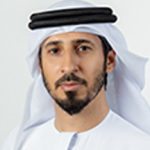
Speakers
Ali bin Sebaa Al Marri
Executive President, Mohammed Bin Rashid School of...

Senior Associates
Abdallah Al Dardari
Assistant Secretary-General, Assistant Administrator and Director of...
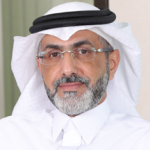
Speakers
Fahad M. Alturki
Director General Chairman of the Board of...
Videos
Session 1: The Potential of Industry 4.0 and Artificial Intelligence in Fostering Economic Growth and Diversification of the GCC
Date
15/10/2024
Time
From 10:00 am To 11:30 am
This session explores the potentialities of Industry 4.0 for the GCC, focusing on strengthening existing economic sectors and facilitating economic diversification. It will concentrate on the energy and tourism sectors, examining how technologies like AI, IoT, VR, and digital twins can enhance efficiency, sustainability, and visitor experiences. By integrating smart grids, predictive maintenance, and immersive experiences, the GCC can revolutionize these key sectors and maintain their global leadership in energy while attracting more tourists with unique, high-quality experiences. Furthermore, the session will discuss the potential of the GCC to become a global hub for Industry 4.0 services through strategic investments in R&D, infrastructure, and talent. This would drive economic growth, create high-skilled job opportunities, and foster innovation ecosystems as well as enhancing the regional progress specifically towards SDG#9: Industry, Innovation and Infrastructure and within an integrated approach seeking synergetic acceleration of related SDGs at large. Key research questions include the applications of Industry 4.0 in the GCC, strategies for effective integration, contributions to sustainable development goals, and addressing challenges and barriers to implementation. The session aims to provide actionable insights for policymakers, industry leaders, and stakeholders to harness the transformative potential of Industry 4.0.
Speakers

Speakers
Mbang Sama
Founder & Executive President, Digital Transformation Alliance

Speakers
Isabelle Galy
Vice-President, ClusterIA

Speakers
Lanouar Charfeddine
Full Professor of Economics, Qatar University

Speakers
Sarah Najm
NUAct Fellow in Economics of Creative Industries,...

Speakers
Saoussen Ben Romdhane
Trade Specialist, Office for MENA Countries, International...
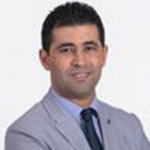
Speakers
Nizar Jouini
Associate Professor. Public Policy Program SEAPP. Doha...
Videos
Session 2: Entrepreneurship in The Era of the Fourth Industrial Revolution in GCC
Date
15/10/2024
Time
From 12:00 pm To 2:00 pm
The objective of this session is to examine the landscape of entrepreneurship in the GCC within the context of the Fourth Industrial Revolution. The session will explore the development of entrepreneurial ecosystems in the GCC, focusing on the opportunities and challenges presented by Industry 4.0 technologies. By delving into the intentions of entrepreneurs in the region, identifying critical success factors, and sharing best practices from smart factories in emerging economies and BRICS nations, the session aims to provide a comprehensive overview of the entrepreneurial landscape.
Key topics to be discussed include the current state and evolution of GCC entrepreneurial ecosystems in the context of Industry 4.0, highlighting how advanced technologies are shaping new business opportunities and driving innovation. The session will also examine the entrepreneurial intentions of individuals in the region, analyzing their motivations, goals, and readiness to embrace Industry 4.0 technologies. Critical success factors for entrepreneurs in the era of the Fourth Industrial Revolution will be identified, such as access to funding, supportive regulatory frameworks, and the availability of skilled talent. Additionally, the session will present best practices from smart factories in emerging economies and BRICS nations, offering valuable insights and lessons that can be applied to enhance the entrepreneurial environment in the GCC.
Speakers

Speakers
Virginia Bodolica
Professor, The Said T. Khoury Chair of...
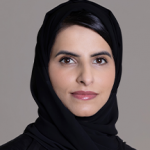
Speakers
Sara Alnuaimi
CEO, Sharjah Entrepreneurship Center

Speakers
Adnan Maalaoui
Professor of Entrepreneurship, Mohammed Bin Salman College...

Speakers
Issam Mejri
Associate Professor of Entrepreneurship, EDC Paris Business...
Videos
Keynote Speech
Date
15/10/2024
Time
From 3:00 pm To 3:45 pm
Industry 4.0, Artificial Intelligence and Entrepreneurship
https://scholar.google.com/citations?user=8ixtGsIAAAAJ&hl=en
Speakers

Speakers
Wim Naudé
Visiting Professor in Technology and Development, RWTH...
Videos
Session 3: The Potential of Smart Cities in Fostering Economic Growth and Wellbeing in GCC Countries
Date
15/10/2024
Time
From 3:45 pm To 5:30 pm
The objective of this session is to examine the potential of smart and sustainable cities to serve as catalysts for economic growth and to enhance the well-being of residents in GCC countries. The session will explore various aspects of smart city initiatives, including the integration of renewable energy, the creation of green jobs, and the use of augmented reality to boost the tourism and hospitality sectors. By presenting and discussing the progress made towards smart cities in the GCC, the session aims to identify the skills and job opportunities needed for sustainable and inclusive urban development, and to examine innovative approaches to leveraging technology for urban enhancement.
Key topics to be discussed include the role of smart and sustainable cities in driving economic growth and well-being in the GCC, the current progress towards these goals, and the green jobs and skills required for sustainable urban development. Additionally, the session will explore the concept of “The City as a Service,” focusing on how augmented reality can unlock potential in tourism and hospitality. The integration of renewable energies in GCC cities and the role of Industry 4.0 technologies in this process will also be examined, highlighting how these advancements contribute to the region’s broader economic and environmental objectives.
Speakers
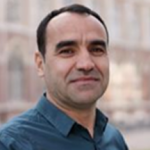
Research Fellows
Fateh Belaïd
Principal Fellow, King Abdullah Petroleum Studies and...

Speakers
Boumediene Ramdani
Associate Professor of Entrepreneurship & Innovation, Centre...
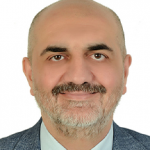
Speakers
Jihad Farah
Director, Urban Policy Research Program, Arab Urban...

Speakers
Arman Eshraghi
Professor of Finance and Investment, Cardiff Business...
Videos
Agenda
Session 4: Smart Factories in GCC Countries: Facts, Trends and Potential (Round Table)
Date
16/10/2024
Time
From 9:30 am To 11:30 am
The objective of this session is to examine the industrialization of the GCC and the potential of Industry 4.0 to facilitate the emergence of these countries as industrialized nations. In light of recent initiatives such as Saudi Arabia’s Vision 2030 and the UAE’s Vision 2035, which emphasize the role of industrialization and smart factories, this session will provide an overview of recent progress in this direction. It will delve into how these initiatives are transforming traditional industries through the integration of advanced technologies, driving economic diversification, and fostering a sustainable and innovation-driven economic landscape.
Furthermore, the session will explore the broader impact of advancements in AI and Industry 4.0 technologies on economic and social life in the GCC. By positioning the region as a global hub for AI, virtual reality, and other cutting-edge technologies, these advancements are reshaping industries and creating new opportunities. Topics to be discussed include the readiness of the GCC for the implementation of smart factories, future of work: labor replacement and augmentation, specific developments in the UAE’s smart factory initiatives, and the strategic alignment of Saudi Arabia’s Vision 2030 with the adoption of smart manufacturing practices. Through these discussions, the session aims to highlight the transformative potential of Industry 4.0 in establishing the GCC as a leader in the global industrial landscape.
Speakers
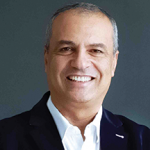
Research Fellows
Adel Ben Youssef
Professor of Economics, University Côte d'Azur

Speakers
Antonio Feraco
Managing Consultant, Abu Dhabi Department of Economic...
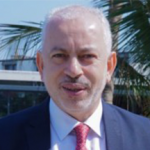
Speakers
Rafik Feki
Division of Digital Transformation and Artificial Intelligence...

Speakers
Shripad Lale
Founder, Managistix Consulting LLP

Speakers
Fadi Salem
Director of Policy Research Department, Mohammed Bin...

Speakers
Keertana Subramani
Economics Policy Researcher, Mohammed Bin Rashid School...
Videos
Session 5: Skills and Impacts on the Labor Market
Date
16/10/2024
Time
From 12:00 pm To 2:00 pm
The objective of this session is to examine the pivotal shifts in the labor market that have emerged as a consequence of the implementation of Smart Manufacturing and Industry 4.0 technologies in GCC countries. The session will analyze how the requisite skill sets are evolving, assess the efforts of GCC countries in developing these essential skills, and evaluate the adaptability of the education system in responding to these changes. Furthermore, the session will examine the potential of talent immigration to address the shortage of critical skills and the capacity of the gig economy to empower women through digitalization.
Key topics to be discussed include the future skills requirements in the GCC labor market, focusing on the new competencies and technical proficiencies needed to thrive in an Industry 4.0 environment. The impact of automation and AI on employment in GCC countries will be explored, highlighting the shifts in job roles, the creation of new opportunities, and the potential displacement of certain jobs. The session will also delve into the potential of the gig economy in empowering women, leveraging digital platforms to provide flexible work opportunities and enhance economic participation. Lastly, initiatives and policies for bridging the skills gap in the GCC will be evaluated, examining how governments, educational institutions, and industry stakeholders are collaborating to develop a skilled workforce capable of meeting the demands of the Fourth Industrial Revolution.
Speakers

Speakers
Christian Haefke
Professor of Economics, NYU Abu Dhabi

Research Fellows
Adel Ben Youssef
Professor of Economics, University Côte d'Azur

Speakers
Emmanuelle Walkowiak
Vice-Chancellor's Senior Research Fellow, RMIT

Speakers
Simone Vannuccini
Junior Professor Chair in Economics of Artificial...
Videos
Key Takeaways and Closing Ceremony
Date
16/10/2024
Time
From 2:30 pm To 3:00 pm
Speakers

Research Fellows
Ibrahim Elbadawi
Development Studies & Research Forum, Dubai

Research Fellows
Adel Ben Youssef
Professor of Economics, University Côte d'Azur

